Nigeria
Nigeria, South Africa, Mozambique, and Burkina Faso have been removed from the Financial Action Task Force’s (FATF) global “grey list.”
The FATF, a global watchdog that tracks how countries combat money laundering and terrorist financing. According to the group, the four nations have made “significant progress” in addressing weaknesses that previously rendered them high-risk destinations for illicit financial flows.
The announcement, made in Paris last Friday, is being described as a “vote of confidence” for Africa’s two largest economies, Nigeria and South Africa, whose grey-listing in recent years had raised concerns among investors and international lenders.
What exactly is the grey list?
When a country is grey-listed, it means the FATF believes it has gaps in its financial monitoring systems. Things like poor oversight of money transfers, weak enforcement of anti-terror finance laws, or limited transparency in banking operations.
While grey-listing isn’t as severe as being blacklisted, it often leads to increased scrutiny from international banks, costlier transactions, and reduced foreign investment.
Some economic analysts report that for countries like Nigeria and South Africa, both battling inflation and currency instability, the grey list became an economic red flag that discouraged global investors and made it harder for local businesses to secure international funding.
How they got off the list
Nigeria introduced tougher anti-money-laundering rules, tightened oversight of digital and mobile money transactions, and improved coordination between its financial intelligence units and the Economic and Financial Crimes Commission (EFCC).
South Africa, after years of corruption scandals and state capture cases, pushed through reforms that gave regulators more power to trace suspicious transactions and hold public officials accountable.
FATF said the changes “demonstrate substantial effectiveness and political commitment,” while warning that continued vigilance will be necessary.
Mozambique and Burkina Faso also made significant progress, particularly in monitoring cross-border cash flows linked to armed groups operating in their regions.
Why this matters beyond the headlines
For policymakers, being off the list is a diplomatic win, but what does this mean to the ordinary citizen?
In Nigeria, this could mean Cheaper cross-border transactions, more stable Naira: As investor confidence returns, the flow of foreign currency could strengthen the local currency over time and easier business operations: Entrepreneurs seeking partnerships or funding from abroad will find fewer rejections due to “risk profile” concerns.
In South Africa, this win would mean Lower cost of borrowing, Job creation and stronger consumer protection. The same systems that track dirty money also make it harder for scammers and corrupt officials to exploit ordinary citizens.
In short, delisting can help restore trust.
Regional effect
Africa’s economic giants often set the tone for regional markets. When South Africa and Nigeria were grey-listed, it made other African nations look riskier by association.
Now, their removal could spark a confidence rebound for neighbouring economies like Ghana, Kenya and Côte d’Ivoire, especially in attracting investment in fintech, renewable energy, and manufacturing.
But experts caution that this isn’t the end of the story.
Some analysts say the delisting shows progress, not perfection, and that countries risk slipping back into the same traps if they do not improve their operations.
What next
Both Nigeria and South Africa will remain under FATF monitoring to ensure reforms are sustained. For Nigeria, the challenge lies in balancing rapid fintech growth with tight compliance. South Africa must ensure its political class doesn’t undo hard-won reforms as elections approach.
For citizens, the hope is that this reform moment translates into something tangible, a stronger currency, more jobs, better access to finance.
The delisting of Nigeria, South Africa, Mozambique and Burkina Faso signals a turning point in how global institutions view Africa’s financial systems.



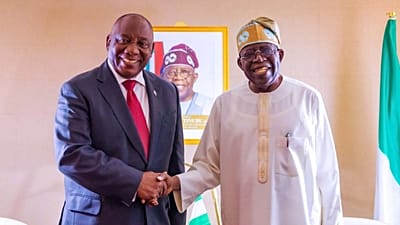

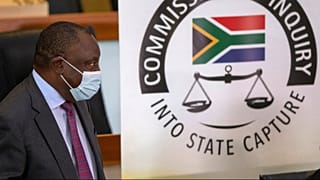

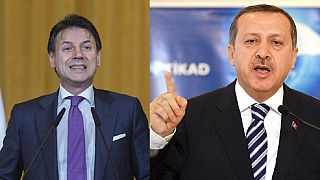
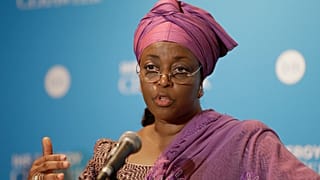
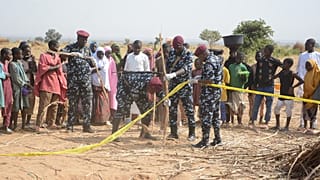
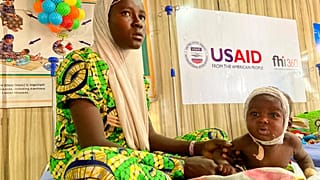
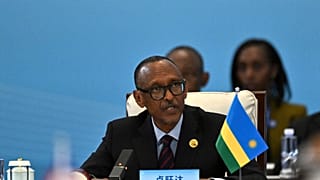

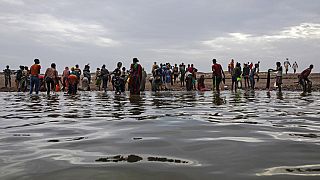
01:00
Pix of the Day January 28, 2026
Go to video
Senegalese actress Halima Gadji dies in France
Go to video
Streamer IShowSpeed calls Ghana “Home” on Africa tour
Go to video
Egypt to restrict children’s social media use
Go to video
SADC team joins Mozambique flood rescue effort
02:13
Families bid farewell to schoolchildren in South Africa killed in a school bus crash